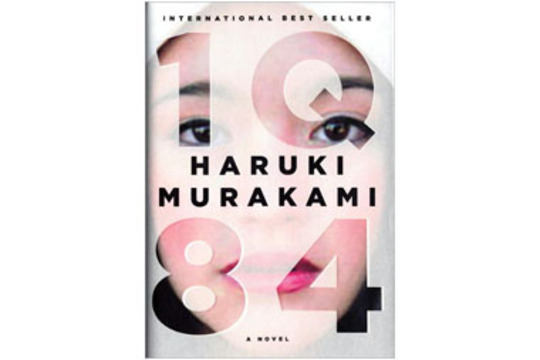1Q84 is a trilogy (published in English as a single volume) by award-winning author, Murakami Haruki (村上 春樹). I had read a short story of his, Kino, in The New Yorker early last year, and had been taken enough with the work to look into other works by the same writer.
1Q84 caught my eye then, having been listed as second in Amazon’s best fiction books of the year for 2011. It wasn’t, however, until this month that I finally had the opportunity to sit down with this work, and I am still berating myself for having taken so long about it.
My very first impression, having just put it down, minutes ago, is that I want to read it again right away. There’s few enough books over the years that have had that effect on me.
Alas, what I really want is to read it in Japanese, but my quite limited knowledge of the language is a barrier to that ambition, at this time. In English, the book has distinct power and nuance, and I suspect that is only amplified in its original language.
For the sake of other would-be readers, I will omit any real spoilers, and discuss things in more general terms.
The style of this book, I understand, is something of a departure from Murakami’s usual first-person narrative style, and instead emerges as an interesting, multi-threaded blend that has stylistic similarities to both Tom Clancy and Raymond Chandler.
Note: The title, 1Q84, is something of a bit of Japanese word-play. Q, as you would pronounce it in English, sounds like kyuu, which (among other things) means Nine in Japanese (九).
Murakami delivers sinister mystery, action, murder, danger, miracles and the uncanny, interwoven with a romance that seems so star-crossed that it makes Romeo and Juliet feel like an arranged-marriage. As the narratives begin to get rolling, Murakami builds and maintains layers of suspense that seem impossibly thick, despite most of the dramatis personae seeming to spend much of their time in their respective apartments. I’ve never seen an author hold multiple threads of suspense so deftly or for so long.
When 1Q84 is done, it leaves many unanswered questions – but they are, I think, questions that need no answer. There are things the reader will discover that perhaps the characters themselves never will, and mysteries which will remain just that. It doesn’t feel lazy or weak. Instead, it provides even more solidity to the strange situation in which the characters find themselves.
Unexplained matters or not, I found the ending a very satisfying one.
Nevertheless, there are some trigger warnings that I think need to be provided. Murakami’s often-direct prose in this book covers quite a bit of territory: Murders, domestic violence, child-abuse, abduction, suicides, dysfunctional families, religious cults, Jehovah’s Witnesses, explicit sexual scenes (including some quite unusual congress), profanity, smoking and drug-use.
Murakami has a positive gift for blending the uncanny and the magical with the mundane and the ordinary, and for making sinister things seem commonplace, or making commonplace things seem sinister. Throughout, the narrative moves smoothly between an economical storytelling style and a more ornate form, seamlessly shading from one to the other and back again, like the tides.
A tight cast of distinctive characters, mysteries, danger, romance, conspiracy, suspense, and more. If these tickle your fancy, then I cannot recommend this book enough.
